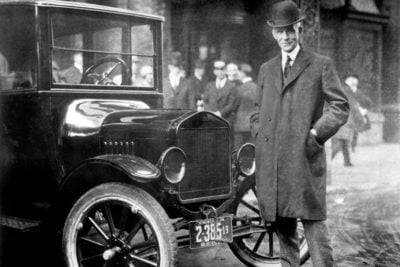Two figures tower over the idea, and the realisation, of industrial America. The first is Henry Ford, whose factory process dedicated to mass car production featured specifically focused machinery, a moving assembly line, and a linear process of interdependent tasks. The second giant in this regard is Frederick W. Taylor, whose principles of scientific management involved the division of factory work into small and simple tasks in a coordinated, sequential manner in the name of maximum efficiency.
Both figures propelled standardisation, the finding of a mass produced common ground, the production, in fact of commonness. Intellectually, it might have been deadening, but mass production suited mass consumption. What, then, of this creep into other areas of society, including that of the university?
In her novel Look at Me (2001), Jennifer Egan sketches one of her characters as an atomised intellectual who claims that the “narrative of industrial America began with the rationalisation of objects through standardisation, abstraction and mass production”. It concluded “with the rationalisation of human beings through marketing, public relations, image consulting and spin.”
The modern academy, far from being immune to this rationalisation, has capitulated to the Fordist-Taylor approach with enthusiastic abandon. The Fordist academic is a spineless, compromised product, an offspring cowardly in meetings, a lazy collaborator seeking to maximise production gains with minimal effort and one suspicious of individuality. (more...)

No comments:
Post a Comment